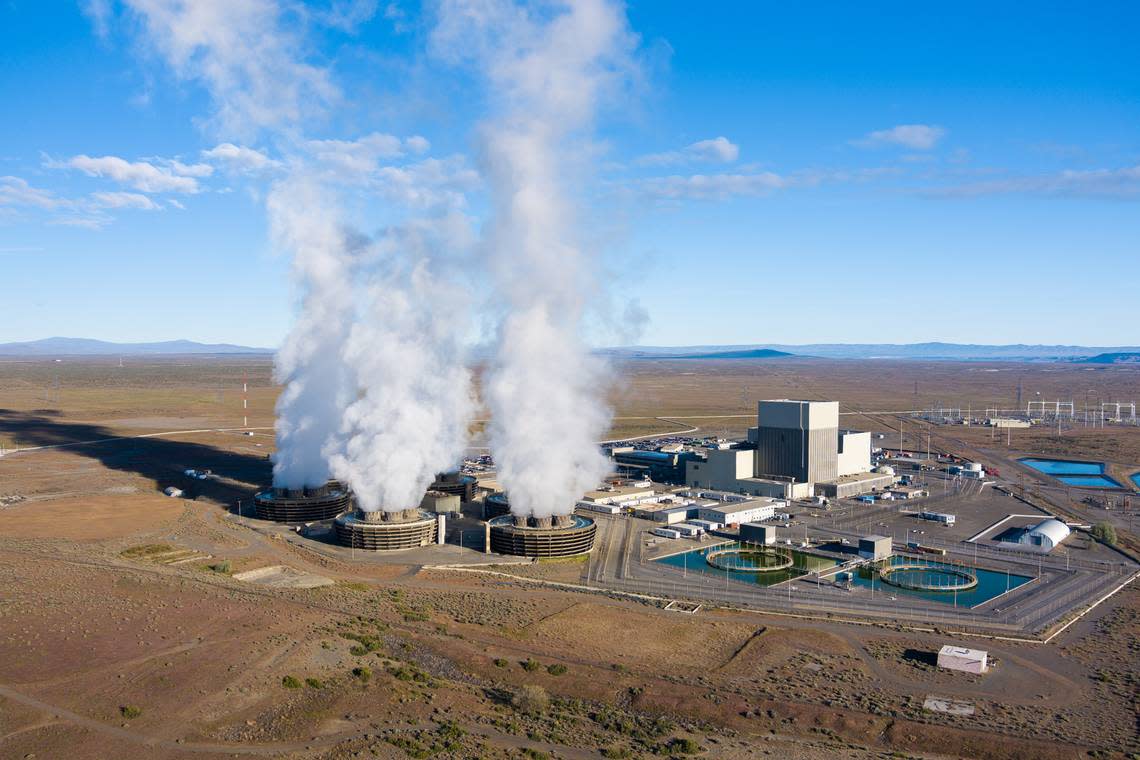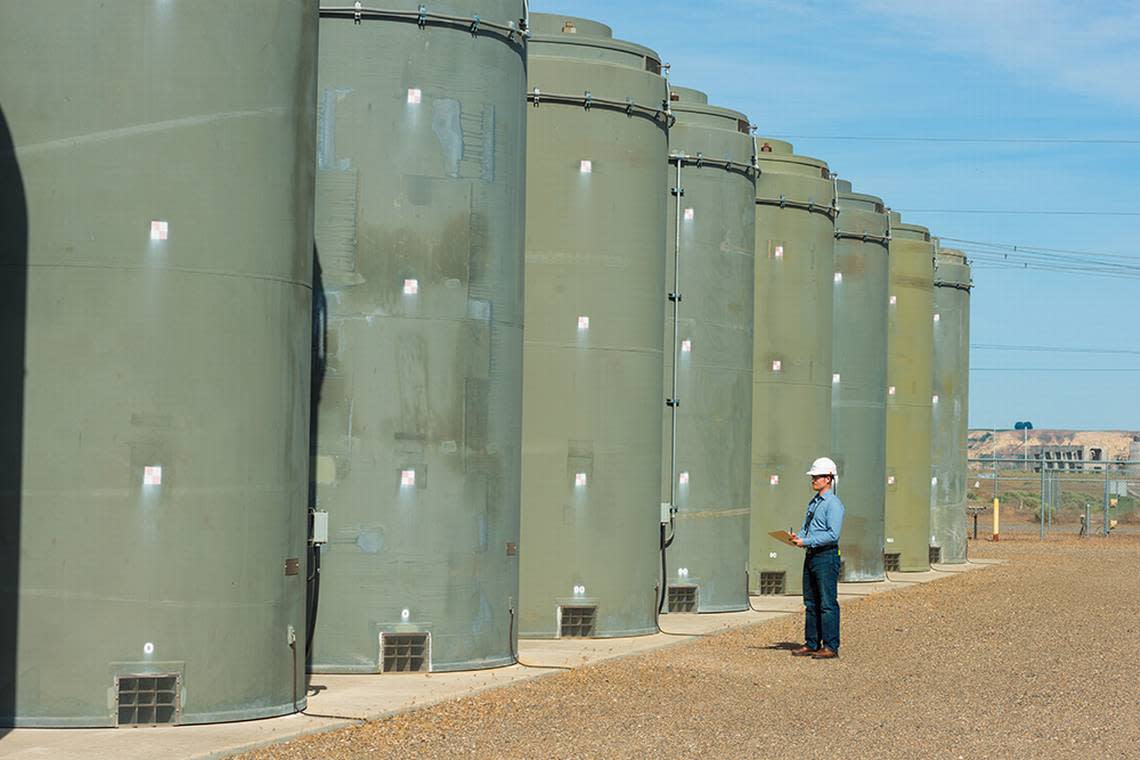Richland nuclear plant could be 1st in U.S. to produce power this way under new deal
Energy Northwest of Richland is the first commercial nuclear power producer to sign up to potentially buy recycled nuclear fuel from Curio, a small startup company.
Now other nations, such as France, with nuclear power programs recycle spent nuclear fuel, but not the United States.
Instead, nuclear fuel is pulled out of commercial power plants after several years of use and stored until the nation has a national repository for it.
Curio, based in Washington, D.C., plans the nation’s first plant to recycle spent nuclear fuel from commercial nuclear fuel plants to produce new nuclear fuel, plus other products.
Recycling used low-enriched uranium fuel “would represent a game-changing development for the future of the commercial nuclear energy industry,” said Bob Schuetz, chief executive of Energy Northwest.
Energy Northwest owns and operates the Columbia Generating Station, just north of Richland, Wash. It is the only commercial nuclear power plant in the Northwest.
Outside the plant on a concrete pad in a secure area are 54 concrete and steel casks — each 19 feet tall and 11 feet in diameter — holding spent fuel that dates back to when the plant began operating in 1984.
The used nuclear fuel was supposed to go to a national repository at Yucca Mountain, Nev. But with no plans to proceed with that project, the United States continues to look for a site for a repository for spent nuclear fuel that comes from all of the nation’s commercial power plants plus some Hanford nuclear reservation fuel.
“Yesterday’s nuclear waste is holding back tomorrow’s reactors,” said Edward McGinnis, chief executive of Curio and the Department of Energy’s former acting assistant secretary of nuclear energy for 2 1/2 years.
The nation now has nearly 95,000 tons of spent nuclear fuel with no path forward and about 2,200 tons being added each year.
Energy Northwest alone has paid $100 million in fees since 1983 to DOE for pending national disposition of the spent fuel.
Opponents of nuclear energy often cite the nation’s lack of a disposal site for used nuclear fuel as a reason not to expand production.

“This is a great opportunity ... to reduce the footprint of used fuels,” said Jason Herbert, senior director for external strategy at Energy Northwest.
It also demonstrates the nuclear industry’s long-term commitment to sustainability and environmental stewardship, Schuetz said.
Only about 4% at most of the energy value of commercial nuclear fuel is used by the time it is pulled out of reactors, McGinnis said.
“We really think that used fuel is a potential asset in the future,” Herbert said.
Curio has plans to remove more than uranium from used commercial reactor fuel.
More plans for used fuel
It also is pursuing plans to remove isotopes that have medical uses. Radioactive isotopes have medical uses ranging from cancer treatments to imaging.

There also are opportunities to remove for other isotopes used by industry, used to power deep-space missions and that may possibly be valuable for new fission-based batteries.
McGinnis estimates that at least 96% of the highly radioactive material in spent fuel would be removed for useful purposes.
And unlike the processes used at the Hanford site just north of Richland to chemically separate out plutonium for the nation’s nuclear weapons program, large amounts of waste would not be generated by Curio’s process, he said.
Energy Northwest also sees an opportunity with Curio to reduce the nation’s reliance on fuel from foreign sources.
Some U.S. commercial power plants have used uranium that comes from Russia, although the Columbia Generating Station is not among them.
“The more that that supply chain and those resources can be domestically based the more secure that supply chain,” Herbert said.
One reason that the United States has not recycled nuclear fuel is concerns about nuclear proliferation.
McGinnis said the Curio process will have the strongest proliferation barriers possible. Plutonium that could be used for weapons would remain commingled with highly radioactive materials as a self-protective measure, he said.
Curio, which has yet to pick a site for its fuel recycling plant, estimates that its plant could be operating in possibly 12 years.
With Energy Northwest as an early partner, the recycled fuel will be optimized for its fuel requirements, McGinnis said.
Energy Northwest is interested now in fuel for the Columbia Generating Station, should the Curio process prove successful, but McGinnis said Curio also will be producing recycled fuel for new advanced nuclear reactors.
In 2021 Energy Northwest signed an agreement with X-energy and Grant County PUD for the development, construction and operation of an advanced nuclear power reactor on land leased by Energy Northwest at Hanford.
